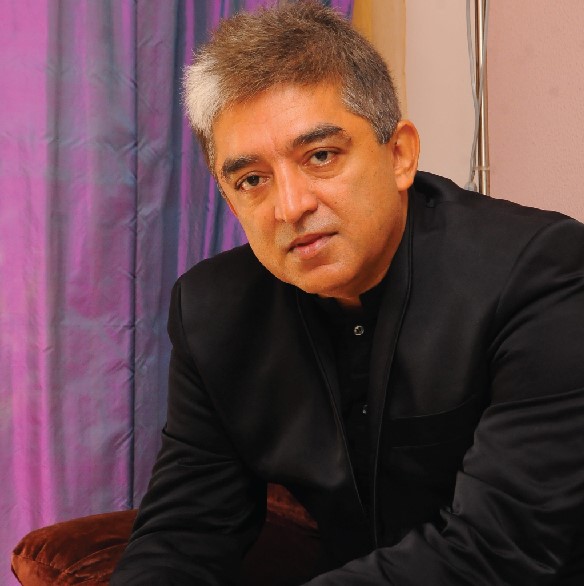
The Covid-19 pandemic has not only changed our lifestyle drastically but is gradually making us forget what ‘normalcy’ felt like too. The misery of being confined to the four corners of our screen may have dampened our hope of returning to “the good old days” anytime soon. However, it still hasn’t triumphed in toning down our spirit when it comes to carrying out events big or small online.
Manipal Institute of Communication (MIC) is known for its famous annual Media Fest — Article-19. The fest is the oldest of its kind in India, which started with the objective to keep the students exposed to the latest trends of the media and entertainment industry. The three-day event had to be compressed into a single day owing to the Covid-19 pandemic and the shift to an online platform. The Indian Constitution, via the fundamental right of Article-19, enables the citizens to have freedom of speech and opinion, but as the proverb goes, “with great power comes great responsibility.” The annual media fest of MIC aims to instil this very concept in the students’ minds who will shape tomorrow.
Themed Rewind of the Decade, Article-19 took place on 26th March this year and kicked off with a talk by Harish Bijoor in the presence of Dr Padma Rani, Director of MIC, and Shruthi V Shetty, faculty coordinator of the event. Mr Bijoor, the keynote speaker, is a marketing and sales specialist, and founder of Harish Bijoor Consults Inc. In his talk, he threw light on understanding the “real India” by saying that “India lives in its villages.” He pointed out that most of us usually fail to concede India’s rural population when we consider the topic of communication; thus, addressing the “real India” still falls prey to the inadequate representation margin.
For ages, the definition of literacy has been tagged along with the ability to read and write; however, Mr Bijoor, in contrast, defined new literacy as “anybody in any country who has eyes to see and ears to hear is literate.” He further gave an example to support his argument about how a person living in a rural area can have access to the life of a person living in the urban half of the country via Instagram reels or Tik Tok. Mr Bijoor compared the urban people to “fish who live in an aquarium for the pleasure of rural people”.
While most of his speech revolved around communication and the communication gap between the urban and the rural sectors of the society, he also laid emphasis on how the old practices of rural people should be preserved while giving out tips regarding the functioning of rural markets. The paradigm of communication theory, indeed, varies from person-to-person. However, ‘the great iron box effect’ by Harish Bijoor, which complements India’s land of diversity, stood out as words of wisdom. He advised the present generation not to iron out the very differences that define India.
The address was followed by an interactive session wherein the students of Manipal University could interact with him and gain insight into how the industry rolls. The question-answer-round commenced with a question about whether digital media does a better job at communication compared to traditional media, followed by another audience member asking Mr Bijoor about his opinion on newer forms of communication like Instagram and Tik Tok, the mention of which had a significant share in Mr Bijoor’s talk.
He explained how and why traditional means like print and radio have become a subset and micro-subset of communication, respectively, due to the number of restrictions attached to them, unlike television and especially OTT platforms. Regarding his opinion on newer forms of communication, he stated that digital media is very global and carries information much faster than traditional media sources. AD and PR agencies have started taking the maximum of their advertisements to digital platforms because of their vast reach, growth, and ability to spread information or news at a tremendous pace.
Mr Bijoor was then asked about the link between present-day problems concerning the media and the mindset of the people. In answer to this, Mr Bijoor elucidated how one needs to be a part of the people’s mindset to be able to change the mindset of the people. He said:
“You must never communicate something that must never be communicated. You cannot swim against the grain and the tide of the normal human being.”
Another student was curious to know how linear media witnessed an escalation in terms of viewership irrespective of the lack of fresh content and ad revenue since the media industry made it to the list of worst-hit industries during the lockdown period. To answer the question, Mr Bijoor talked about how the media industry is in grave trouble as of today. Boredom during the lockdown coerced people to binge-watch old cricket matches and buy subscriptions to a variety of OTT platforms like Netflix, Amazon Prime, etc. New or digital mediums of communication thrived as celebrities started involving themselves in the latest trends just to remain relevant. Consequently, the interactive session marked its end with Harish Bijoor’s answer.
The event ended on a sanguine note of having Article-19 under normal circumstances next time. The faculty coordinator, Shruthi V Shetty, delivered the vote of thanks by extending her gratitude to Mr Bijoor, and all the fellow faculty members and students, who worked hard to ensure the success of the event despite the inimical circumstances.
Written by Aarushi Verma for MTTN
Leave a Reply
You must be logged in to post a comment.